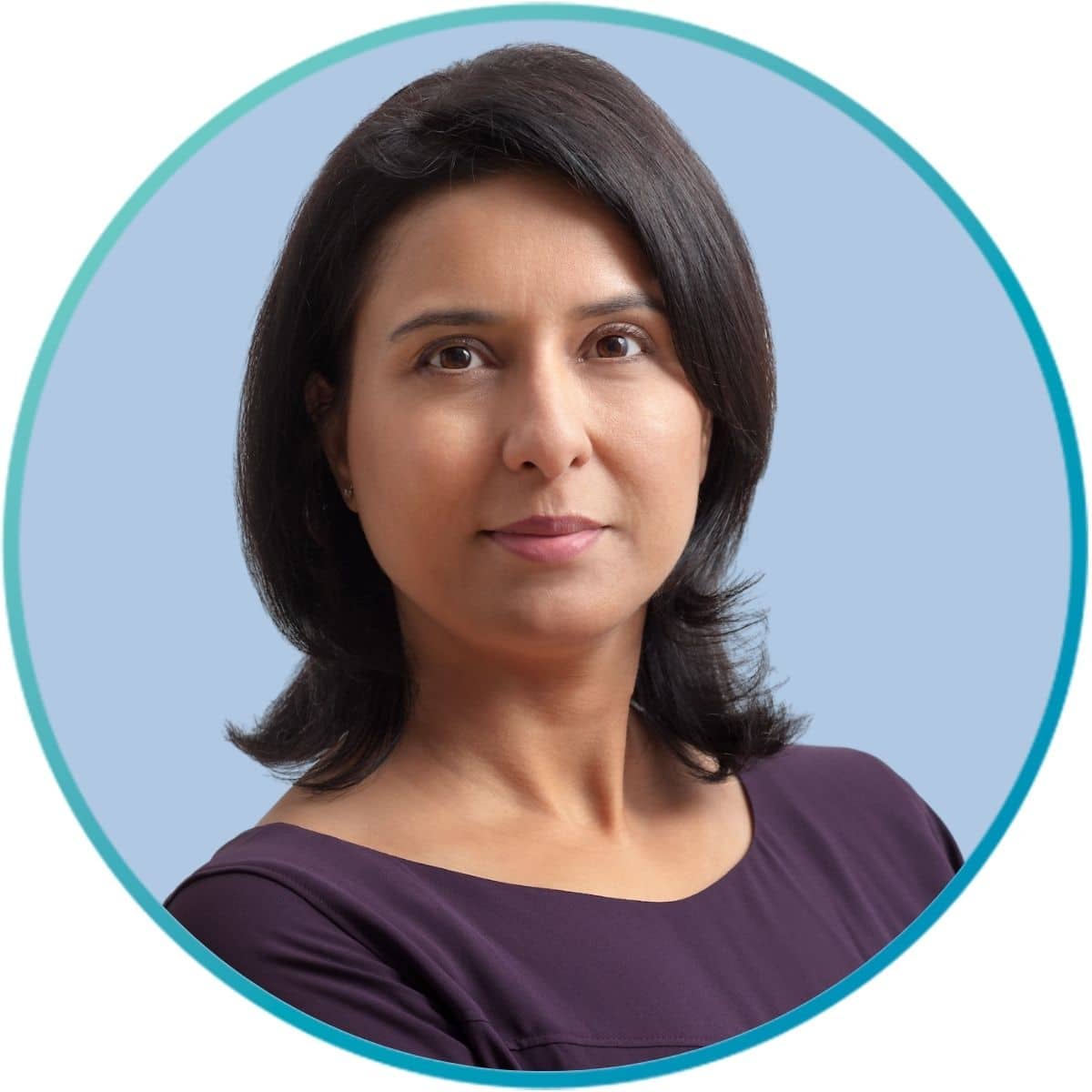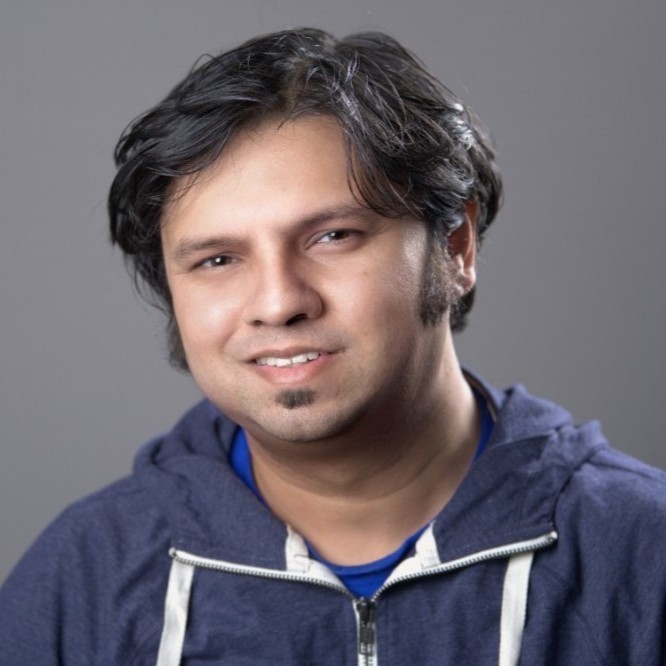What happens when the builder of AI systems and the steward of human potential sit down to reimagine how we design technology for people in a rapidly evolving AI landscape? In this candid conversation, Eightfold’s VP of AI, Ritendra Datta, and CPO, Meghna Punhani, explore what it truly means to build AI that puts people first. From ethical matching to scalable interviewing, they unpack the responsibility of creating technology that shapes careers, opens doors, and expands access to opportunity. This isn’t about AI hype—it’s about the human impact of the systems we build and the leadership required to get it right.
Artificial intelligence is rapidly changing the way we work, hire, and grow. But when it comes to designing AI systems that shape real human careers, the stakes are personal. Eightfold’s Chief People Officer, Meghna Punhani, and VP of AI, Ritendra Datta, both joined the company within months of each other. With backgrounds in scaling HR at Google, Palo Alto Networks and building AI at Meta, Databricks, and other notable companies, they bring complementary perspectives to a shared goal: making careers more accessible, equitable, and human through AI.
A shared mission: Finding the right career for everyone
Meghna and Ritendra both arrived at Eightfold because of a belief that career mobility is one of the most important challenges of our time. As Ritendra put it, “I’ve mentored over 200 people in the past year and a half. Careers are close to my heart. There’s so much fear, uncertainty, and doubt, especially in tech-adjacent fields. I’ve seen how opaque and overwhelming this space can be. That’s what drew me here.”
For Meghna, the mission also struck a personal chord. “In today’s world, with AI booming and so much global uncertainty, employment is always on people’s minds. If Eightfold can move the needle even slightly, that’s a real impact. That’s why I’m here.”
Both see careers not just as jobs, but as meaningful milestones that shape identity and opportunity. Making those pathways clearer and more inclusive is at the heart of their work.
At Eightfold, both leaders emphasize regular mentorship and alignment across functions. They credit intentional check-ins, shared goals, and curiosity-driven conversations as essential to staying connected across disciplines. “It starts by asking not just what we’re building, but why,” Ritendra noted.
Engineering for impact
Ritendra has always been drawn to problems that impact people’s lives at scale. That passion led him from academic research into real-world AI applications. At Google, he worked on query understanding for search. At Meta, he led the Reels recommendation team, which grew from 100,000 to over a billion users. “That growth taught me how much responsibility comes with scale,” he explained. “But what makes Eightfold different is that the stakes are higher. A bad video recommendation is forgettable. A missed job opportunity is not.”
He later joined Databricks to lead work on the Assistant product, but something felt off. “I couldn’t relate to what we were building. I wasn’t using the product myself. Careers, though, are different. Everyone thinks about their career. That makes the work feel much more relevant.”
The matching problem: Fairness at scale
At the core of Eightfold’s product is its AI-powered matching engine. It’s designed to recommend roles to candidates and help hiring managers uncover talent they might otherwise miss. “Matching is a classic recommendation system problem,” Ritendra said. “But in our case, the consequences are far more significant. You’re not just recommending content. You’re affecting people’s lives and the direction of entire companies.”
He identified two major issues that AI can help solve: a lack of knowledge and a lack of fairness. “Most people don’t know which roles are right for them. Most hiring managers don’t have time to evaluate every qualified candidate. AI helps bridge both gaps.” That’s the goal: creating an experience where candidates and hiring managers both have support and visibility into what’s possible.
From systems to conversations: AI interviewing and beyond
One of the most ambitious tools in development is AI Interviewer. Designed to simulate natural, human conversations at scale, it aims to transform how companies conduct early-stage interviews. “It’s a multi-turn, adaptive experience,” Ritendra explained. “And when paired with a Digital Twin of the hiring manager, you can imagine a world where a thousand interviews happen in a single day, with nuance and fairness.”
It’s not about efficiency for its own sake. It’s about creating consistency and access in a part of the hiring process that’s often inconsistent and full of bias. By expanding interview capacity, AI Interviewer helps ensure that every eligible candidate has the opportunity to be interviewed and fairly evaluated—rather than just a small, potentially arbitrary subset limited by recruiter bandwidth. “Today, interviews are time-consuming and fragmented,” he added. “With AI Interviewer, we can reduce the noise and make every interaction feel thoughtful and personalized.”
Meghna emphasized how this shift has already had an impact internally. “When we implemented AI Interviewer, I wasn’t sure how candidates would respond. But the feedback has been overwhelmingly positive. It’s saving our teams’ time and helping us focus more on human connection.”
“AI is moving quickly. HR can’t afford to be a late adopter.” – Meghna, Chief People Officer, Eightfold AI
The last mile: From 80% to 99%
Both leaders agreed that getting a product to work isn’t enough. It has to work well and fairly for everyone. “A lot of companies can build a good demo,” Ritendra said. “But going from 80 to 99 percent? That’s where things get hard. That’s where bias slips in. That’s what we’re solving.”
This is where HR needs to lean in,” Meghna emphasized. “AI is evolving faster than most industries can keep up—but we don’t get to sit this one out. HR can’t afford to be a late adopter. When we partner with business early, we get to shape what AI does, not just react to what it becomes.”
Responsible AI: More than a talking point
Responsible AI isn’t just part of Eightfold’s roadmap; it’s built into every product conversation. “We have a dedicated team focused on fairness and bias,” Ritendra said. “But it’s also something we all think about. We’re not optimizing for short-term wins. We’re trying to create systems that make hiring more fair and more human over the long term.”
Fairness audits, bias monitoring, and transparency are all part of that commitment. As Ritendra noted, “This may be the first time in history that we can build something more fair than traditional hiring methods. That’s a responsibility we take seriously.”
A call to action for technologists and HR professionals
For engineers considering where to apply their skills, Ritendra had a clear message: “This is your moment. If you want to work on hard, meaningful problems, problems that impact real people, this is the space to be in.”
He also shared what he values in candidates. “Curiosity, adaptability, and clear thinking often matter more than specific languages or frameworks. The best engineers I’ve hired were grounded in how they solve problems, not just in what tools they use.”
Meghna echoed the sentiment for her peers in HR.
“To my peers in HR,” Meghna added, “this is the moment to stop seeing AI as someone else’s domain. If we want to build workplaces that are fair, fast, and human—we have to be in the room where the systems get built and be the first to experiment and adopt the technology. We need to lead with curiosity and courage.” That’s how we lead the future of work.”
“We’re not building AI to replace humans, we’re building it to give people more room to be human.” – Ritendra, Vice President of AI, Eightfold AI
That’s the future we’re creating at Eightfold, using AI to solve real-world problems that matter. If you’re an engineer who wants to work on meaningful challenges where your code directly impacts careers, fairness, and opportunity at scale, we’re hiring.
Join us in building AI that makes work more human.

